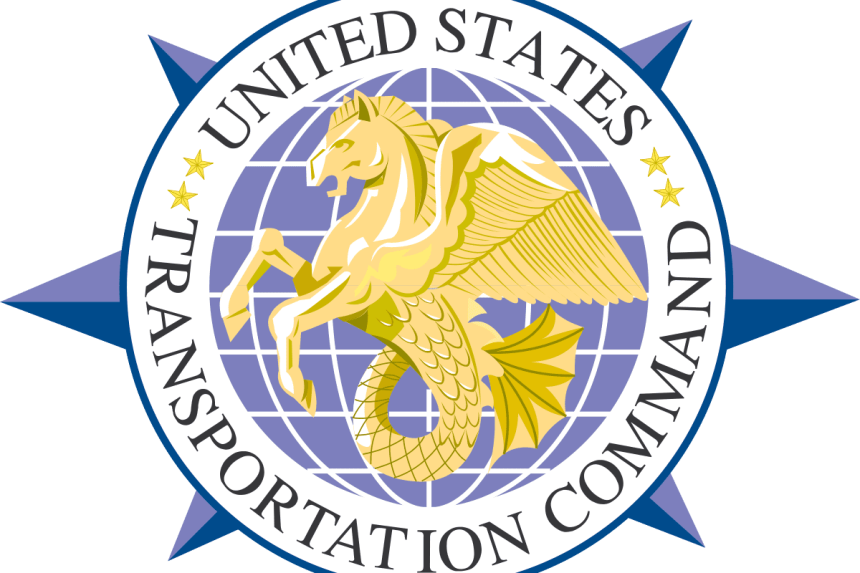The Maritime Trades Department and several other maritime labor organizations recently wrote to the commanding officer of the U.S. Transportation Command, Gen. Jacqueline Van Ovost, expressing appreciation for the military’s efforts to protect commercial shipping while also calling for continued alertness. Text of the letter follows; a PDF version is available HERE.
On behalf of the undersigned American maritime labor unions who serve aboard MSP vessels, we are writing in regard to the ongoing attacks from the Houthi rebels of Yemen on international and U.S.-flag shipping in the Bab el-Mandeb Strait of the Red Sea.
First, we wish to thank you and United States Transportation Command (TRANSCOM),
the Secretary of Defense, the United States Central Command (CENTCOM), the United States Naval Forces Central Command (NAVCENT), and other relevant components of the United States military for the efforts you have made to date to protect U.S.-flag merchant shipping in the region. The level of cooperation and communication between these agencies and the ship operators and labor unions involved has been good, and we hope to see it continue while this crisis continues.
Second, we fully support the recent strikes made against the Houthi rebels in Yemen via American and international forces over the last week. It is critical that the Houthi rebels understand the consequences of attacking U.S-flag shipping and that the United States will continue to protect its sovereignty when that sovereignty is threatened by illegal attacks. These attacks represent the most significant attacks on the United States Merchant Marine in more than half a century.
Third, we are writing to ask for continued cooperation and information sharing, to ensure that our vessels and their crew have all the tools needed to ensure safe transits of the area. Especially critical are secure communication links between vessels transiting the Red Sea and the naval vessels deployed in the area to deter and defend against Houthi attacks. While we understand that procedures are being developed and so far, the joint efforts of our vessel operators, mariners and naval personnel have resulted in no casualties to U.S.-flag ships, we cannot rest on past success. Continued communication, especially at the tactical level, is crucial. Whether this is in the form of specialized equipment, U.S. naval officers from the NCAGS Shipping Control Teams, U.S. civilian mariners with the proper security clearance and COMSEC certification, or other naval liaisons being embedded on the vessels, having access to secure communications between our ships, CENTCOM, the combatants in the area and access to timely intelligence will ensure the level of cooperation and coordination necessary to keep these ships safe and secure as they continue to bring commercial, military, and foreign aid cargoes into the region.
As you are well aware, it is critically important that U.S.-flag vessels carrying commercial, military and foreign aid cargoes are provided the necessary protection from the United States military as they transit the increasingly treacherous waters of the Red Sea. The support and protection that your forces have provided have instilled confidence and pride in our crews as they operate our vessels in this area of the world. The United States Merchant Marine has operated side-by-side with the United States military in virtually every conflict in the history of the United States. We provide the materiel and supplies to the warfighter and they, in turn, have protected our vessels and crews as they sail into harm’s way. While the current conflict involves the Houthi rebels, we may well face in the future more sophisticated adversaries. The critical communication support we request will demonstrate to the U.S. citizen mariners who are in harm’s way that U.S. naval and other military personnel continue to stand with them. Working again together now will strengthen the bond between the U.S. Merchant Marine and the military and should deter other adversaries from taking unwise action against American targets. Moreover, your protection of U.S.-flag assets in this situation has demonstrated to other carriers that the United States is committed to protecting its shipping, which we hope will incentivize other carriers to put their vessels under the U.S.-flag, enhancing the United States Merchant Marine.
We very much appreciate the outreach and meetings that have already occurred on this topic. We are especially thankful for the Maritime Administration and Administrator Ann Phillips, whose strenuous and significant support during this crisis has been very helpful. Our members aboard ship and our organizations ashore stand ready to cooperate and coordinate with you, the various combatant commanders and fleet assets in the region as we continue to deliver the goods, as the United States Merchant Marine has done, in peace and war, since 1775.
Many thanks for your urgent attention and action in response to this on-going threat.
Sincerely,
Kelly Anderson, President, American Radio Association
Mark Clements, Executive Secretary-Treasurer, Maritime Trades Department, AFL-CIO
Dave Connolly, President, Sailors’ Union of the Pacific
Paul Doell, President, American Maritime Officers
David Heindel, President, Seafarers International Union
Don Marcus, President, Masters, Mates & Pilots
Anthony Poplawski, President, Marine Firemen’s Union
Greg Regan, President, Transportation Trades Department, AFL-CIO
Adam Vokac, President, Marine Engineers’ Beneficial Association
cc: LGEN John P. Sullivan, USA, USTRANSCOM

